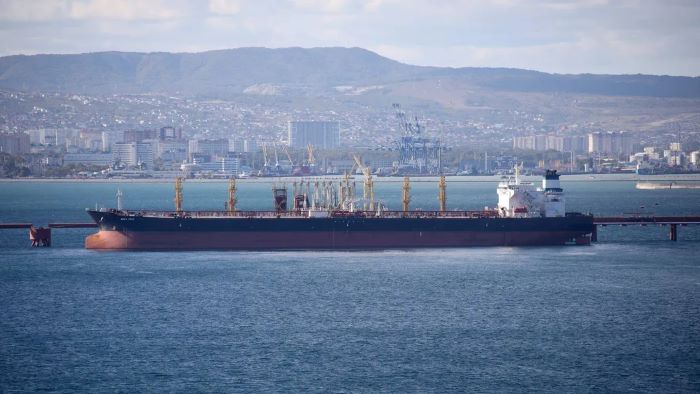Russia’s seaborne oil product exports fell by more than 17% in September as a wave of Ukrainian drone attacks disrupted refinery operations across the country, according to industry data cited by Reuters.
Ukraine's sustained deep-strike campaign against Russian energy infrastructure has crippled over 38% of Moscow's refining capacity and forced the Kremlin to suspend fuel exports while simultaneously preparing to import refined products.
Shipments dropped to 7.58 million metric tons, down 17.1% from August, reflecting reduced fuel production following unplanned outages at several major refining facilities. Among those targeted were Surgutneftegaz’s Kirishinefteorgsintez, Lukoil’s Volgograd refinery, and Rosneft’s Samara group of refineries.
Market sources said the attacks sharply curtailed fuel exports and led to a compensatory increase in crude oil shipments as Moscow sought to offset the shortfall. Unable to refine oil into higher-value products like gasoline and diesel, Russia resorted to selling raw crude at lower profit margins.
Exports from Russia’s Baltic ports, including Primorsk, Vysotsk, St. Petersburg, and Ust-Luga, fell 15.4% month-on-month to 4.36 million tons. Shipments from Black Sea and Azov Sea ports declined even more steeply, down 23.2% to 2.52 million tons.
Only northern exports showed a marginal uptick: deliveries via Murmansk and Arkhangelsk rose 1.8% to 30,200 tons, while Far East ports recorded a small 1.5% decrease to 661,300 tons.
Ukraine's drone campaign cripples Russian refining capacity
Ukraine's long-range drone campaign against Russian oil infrastructure intensified throughout 2025, with at least 28 major strikes hitting refineries, sea terminals, and pipelines since early August.
The International Energy Agency estimates the attacks have cut Russia's refining output by 500,000 barrels per day, with facilities unlikely to recover before mid-2026 even without accounting for future strikes.
By September, Russia faced a 20% shortfall in monthly gasoline demand, triggering record domestic fuel prices and forcing Moscow to suspend all fuel import tariffs through June 2026 while banning exports.




